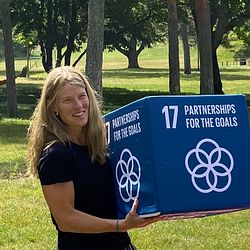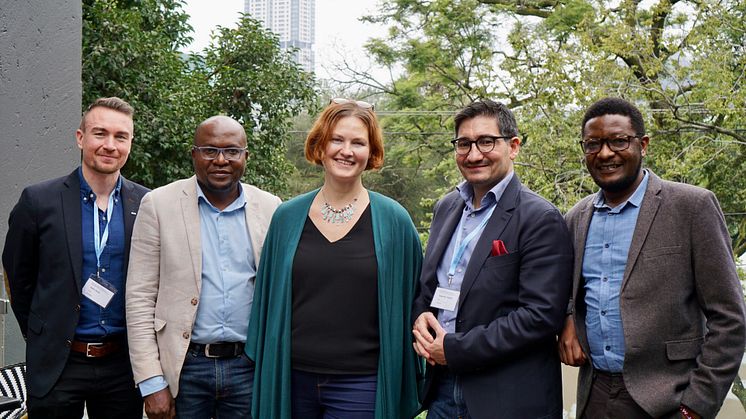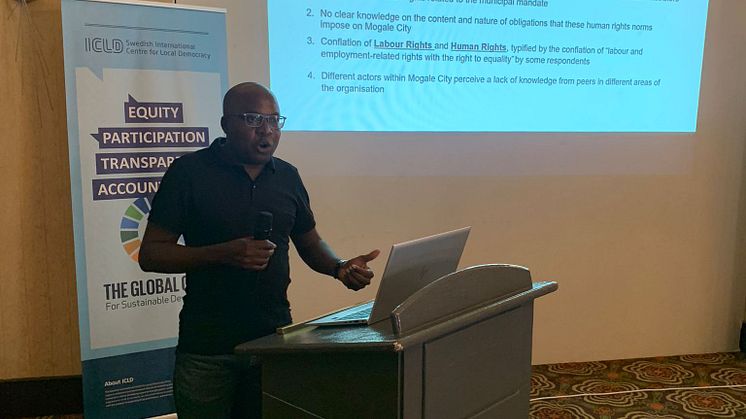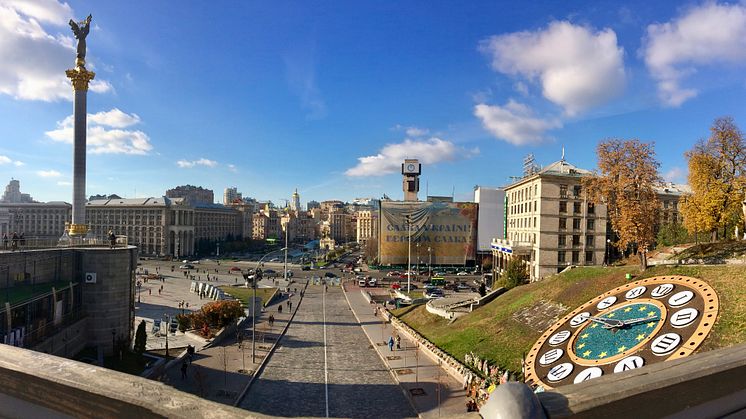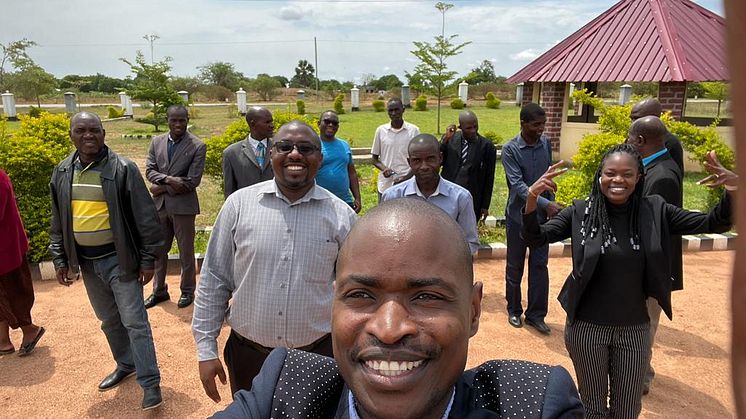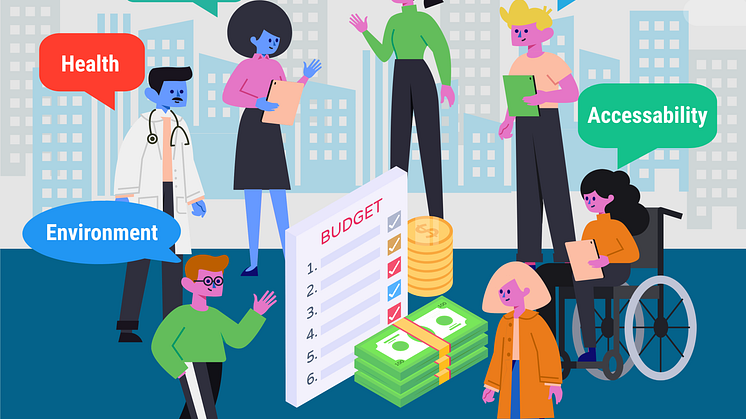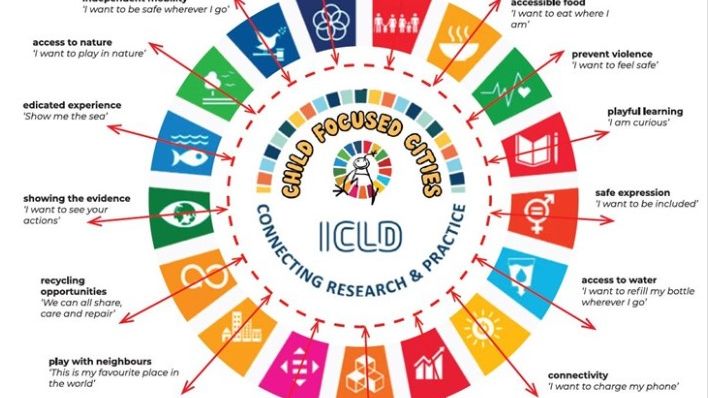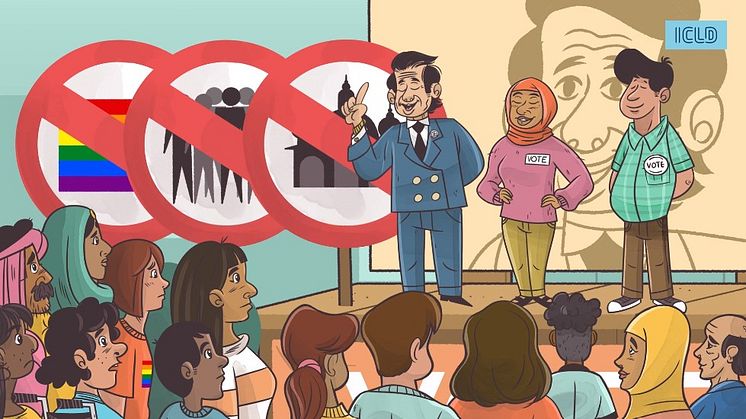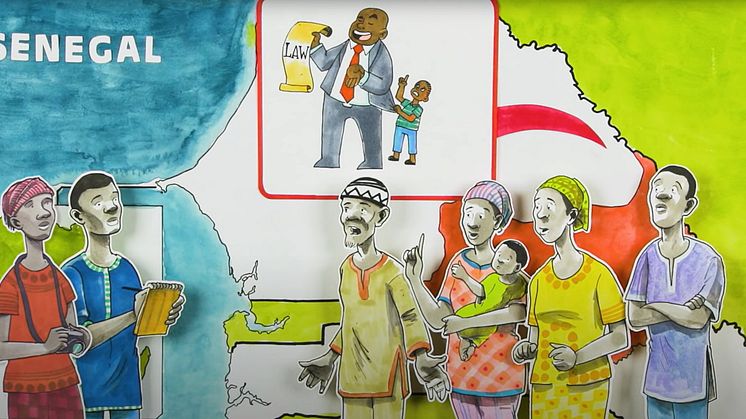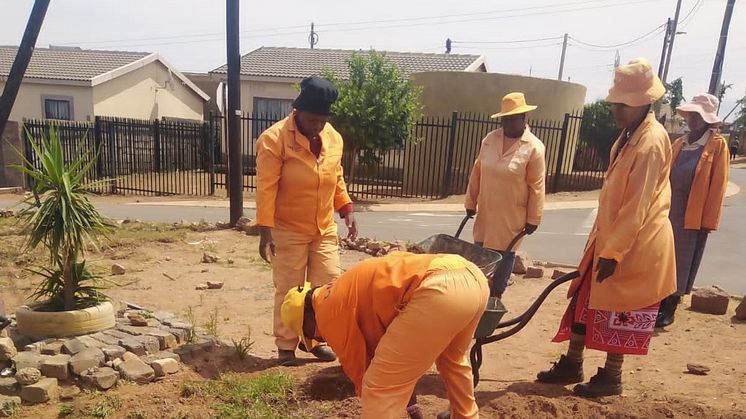
Blogginlägg -
Connecting research and practice: How do local governments work with human rights?
Last year, ICLD kick-started a collaborative research project with the Raoul Wallenberg Institute (RWI) with the aim to create knowledge on how local governments understand, value and work with human rights. The study done in five cities – Falun, Francistown, Mogale, Mutare, Livingstone – analyses common challenges in applying human rights principles and norms, and identifies ways to strengthen the local human rights work.
As the project is nearing its end, ICLD has already reached out with key lessons to more than 60 politicians and officials that participate in ICLD programmes.
To learn more about the experience of connecting researchers and practitioners, we interviewed Dr. Khulekani Moyo, Senior Lecturer at Witwatersrand University in South Africa, who is one of the researchers in the project and who has been active in the dissemination process.

Why is this type of research, which connects you with local government to explore how they understand and work with human rights, important? Why does it matter?
The issues we are researching are ‘bread-and-butter’. It is about people’s livelihoods. It is important to understand the extent to which politicians and administrators wield power when they engage in programmes for the purpose of service delivery. How do they consider their jobs? Is it only to have money available or is it about human rights, and providing for citizens? It is important for us to know this. This is about delivering goods and services to the citizens. The importance of this research is also that it creates dialogue: Dialogue between political leaders and administrators. That dialogue, through the ICLD programme, is critical. Through these forums they get to sit in the same room, communicate, and listen to each other. It builds bridges, that eventually translates to better service delivery.
From a research perspective, what surprised you the most?
The candidness. When I got to the offices of Mogale City, and I interviewed officials, they were very honest about the issues I was asking about. Whether human rights was important for them or not. They did not try to hide, they did not try to make the researcher happy.
Through the interviews we found that politicians think that the officials know nothing about human rights. And at the same time officials thought that politicians know nothing about human rights. It was counteraccusations that I found quite interesting. Within the context of South Africa, I would have thought the municipalities were more attuned to human rights issues than they were. I was surprised that many did not know about the human rights norms. They also often confused human rights with labour rights. Labour rights were more important in the context of their work.
Can you tell us the story about a person that this project impacted?
One of the key informants was part of ICLD. I think that for the ICLD participants, they started thinking critically about how they work with human rights during this research process. It was almost as if they could visualise a different role in their work. They started thinking about the lack of avenues for citizens to ventilate complaints to the municipality. I got a sense that the administrators were rethinking their role, so that they can promote human rights.
It was also an educational experience when I visited NGO offices in informal settlements. I saw an enterprising community that came up with their own ideas to replace areas where service delivery is not happening.
In terms of connecting research and practice, what was the biggest challenge?
That the human rights concepts we are researching are understood differently. That is also an interesting finding from this type of research. There is a lack of conceptual understanding of human rights. Administrators think that they know what human rights are, but as I talk to them they do not seem to understand human rights. It was similar with civil society organisations.
I used to be a government official, so I understand how government works. I understand how the local government system works, provincial systems, and relationships between them. I also understand the financial perspective. This experience helped me conduct this type of research.

What are your thoughts, generally, on dissemination of research for politicians and officials?
The dissemination process is critical for stakeholders. When I present the findings for politicians and administrators in local government, I receive informal feedback. They could identify a lot with results and issues that came out from the preliminary report and that is important. Identification from several local governments mean there are systemic issues they have in common. Mogale may have been a case study, but the same issues can be found in many other local governments -- Even in other countries. It assists to find solutions holistically to something systemic.
And from a dissemination perspective – How can it be improved?
I think it would be great to give local governments the opportunity to respond to our preliminary findings. So that they get the chance to comment. I have ideas about things but there are budgetary limitations. We need a dissemination workshop with politicians, administrators, and communities – Specific workshops for particular cities. And people will show up. In my experience as a researcher in South Africa the politicians will invite you in. They are very receptive. If there was to be a workshop I am sure we would be able to gather politicians and administrators here in South Africa.
Why is it important to connect researchers with practitioners (decision-makers and local government officials)?
It is important to bring credibility to findings and recommendations. This is evidence-based research, which is much more likely to be accepted. Because as a researcher, I am not a politician. I have a different role to play in decision-making. We generate research, and that is critical for credible decision-making. We are neutral and we use scientific processes. Our findings can assist local governments to make well-informed and better decisions.
Do you have any final reflections?
Getting to know ICLD last year was interesting since I had prior interest in local government law. But through ICLD I really got the opportunity to meet with administrators in the local government. I got a chance to develop relationships with the civil society representatives and local government administrators, which made it easier. The research was a joy because they accepted me with open arms. I did not need any letters or protocol. It was very easy because of the support from ICLD participants.
